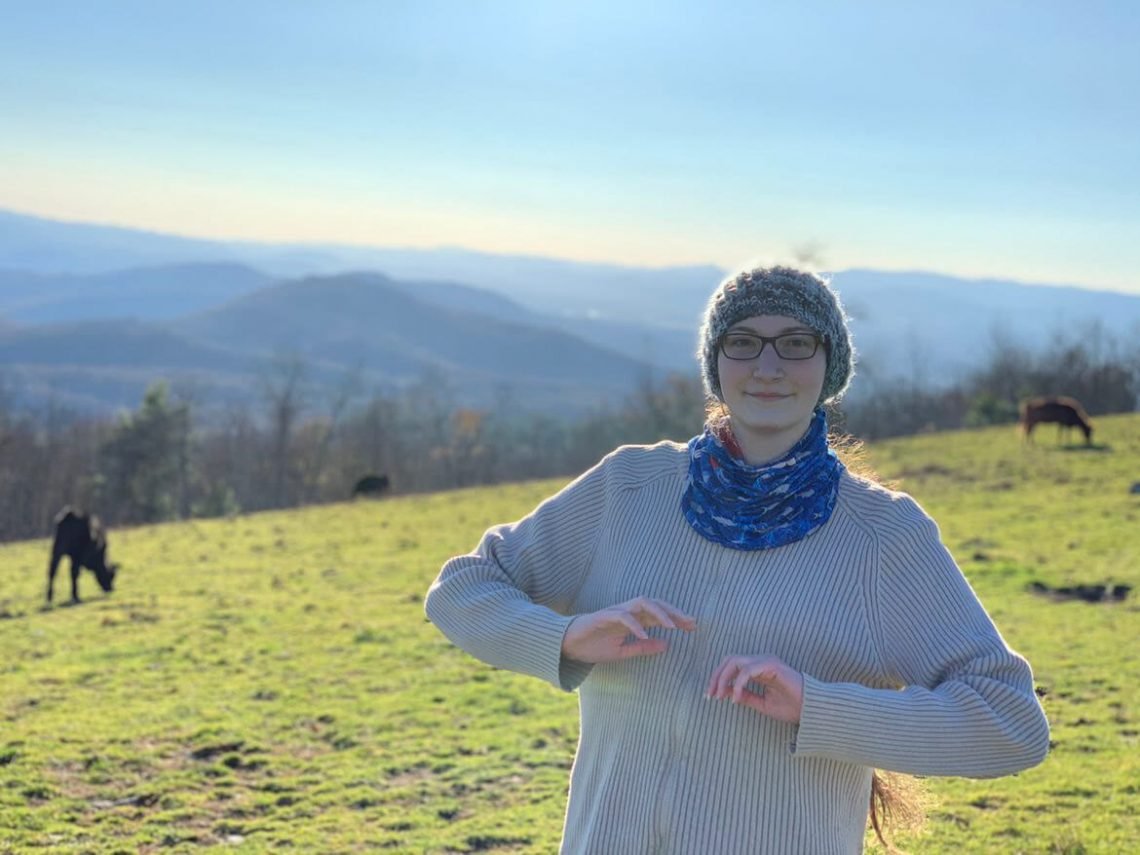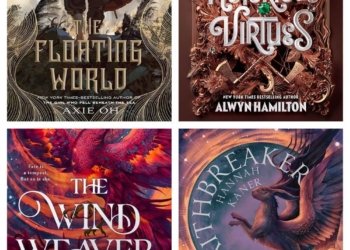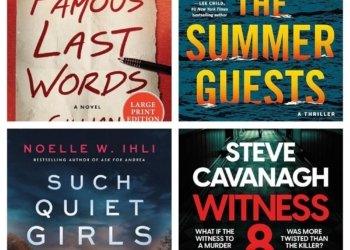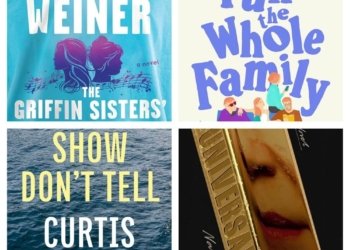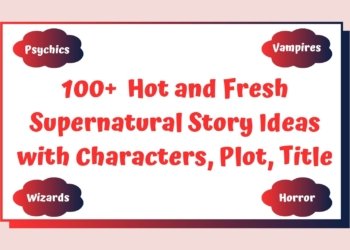No products in the cart.
A Conversation with Anne Stryker, a Fantasy Romance Author
Anne Stryker, a Fantasy Romance Author from Florida, popularly writes under the alias Camilla Evergreen.
584
SHARES11k
VIEWSAnne Stryker was born and raised deep in the concrete garden of Jacksonville, Florida. As a Fantasy Romance author, Anne loves crafting fantastical worlds with swoony, humorous, or mysterious male leads and relatable main characters. Embracing the normal in the abnormal is her favorite pastime.
Camilla Evergreen is an alias of USA Today bestselling author Anne Stryker. Originally intended as a dumping ground for all things lacking fantasy, Camilla/Anne came to the shocking discovery that writing sarcastic, chaotic romcoms full of quippy heroines and adoring heroes has a kick to it.
Camilla/Anne’s neurodivergent tendencies leave her hyperfocused on writing sweet and sassy romances from dawn till dusk and lending whatever her current creative obsessions are to her characters. From arranged marriages to falling for the boss, there’s lots of love to go around.
Let’s get started with a quick rapid fire.
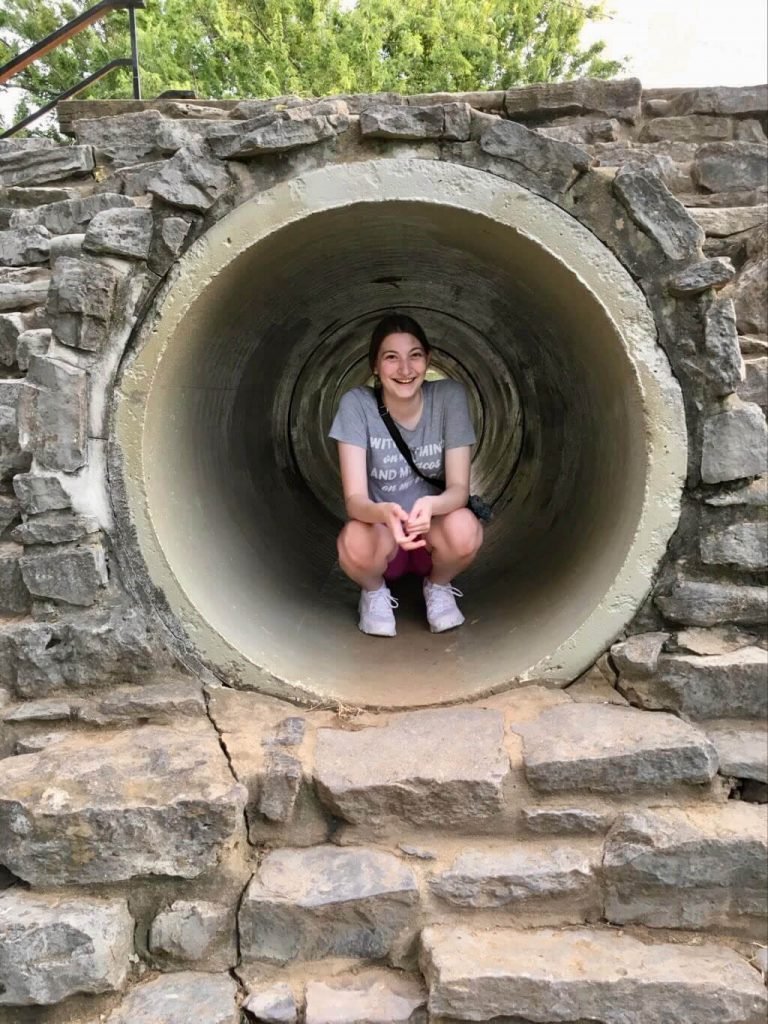
Q1. If you could be transformed into one mythological creature, which one would you choose?
A faerie! Seeing as so many “faerie” traits are closely linked with neurodivergent tendencies, I’d fit right in and potentially get wings.
Q2. What time do you usually go to bed at night?
Midnight. Or later. Do I ever sleep?
Q3. What are the least-likely three words someone would use to describe you?
Extroverted, normal, mean.
Q4. Where did you go on your last vacation?
…Vacation? I have never.
Q5. Would you rather find your dream job or win the lottery? You can’t do both.
I already have my dream job, so winning the lottery would be fantastic. Ads are so expensive.
Q6. What is one thing you regret spending money on?
Ads that don’t work and “author help sheets” that aren’t entirely relevant to my personal process.
Q7. What object do you misplace or lose the most?
My sanity. I don’t misplace things often enough that I can think of anything else.
Q8. If you were a spy, what would be your codename?
Agent K is what a friend in high school used to call me when we’d pass notebooks during class. Yes, entire notebooks. At the front of the class. Right beside the teacher’s desk. We were not very discreet. Maybe I should stick to writing and not explore a career as a spy…
Q9. What secret about the universe would you most want to learn?
The question that is answered with 42. The world is scary, and I don’t have a clue what I’m doing.Anne Stryker / Camilla Evergreen.
Q10. What never fails to make you laugh?
Minecraft YouTubers! Specifically the Hermitcraft crew. And more specifically Grian.
Q11. What was one “before” and “after” in your life?
Before I published a book under “Camilla” and after doing so helped me find success as an author.
Q12. What do you think people misunderstand about you?
Despite the fact I struggle with anxiety and imposter syndrome, I’m comfortable with who I am as I person, and I love my work. I merely doubt general reception of both myself and my work. I’m very used to being content by myself, and I’m never fishing for compliments. Both compliments and criticism make me uncomfortable.
It’s time for a more detailed conversation, Anne.
You’ve answered our rapid fire brilliantly, Anne. Now, it’s time for our readers to know more about the person behind the book.
Q. Tell us something about yourself that’s going to keep us wanting more.
I lack the capacity to chill when I like something, and due to this fact, I live my life in extreme phases. One month if I’m hooked solely on reading, I’ll read several books a day. One week if I’m obsessed with polymer clay, I’ll make over a hundred tiny bears. If I love a cartoon or an anime, it’s devoured in a night and it’s all I’ll think about for the next week. This obsessive behavior allows me to write entire novels in a matter of days, so there’s always new books from me and eight others prepped for anyone who happens to want more.
Q. Well, that’s just…memorable for sure. So, what books have you read more than once in your life?
I don’t like to reread books in their entirety unless it’s something I’m editing, but if I love a book, I’ll go through my favorite scenes or flip to random pages and read those. I love the Daughter of Smoke and Bone series by Laini Taylor. Folk of the Air by Holly Black. The Love Hypothesis and Love on the Brain by Ali Hazelwood. Being a happy little bookworm, it’s actually almost like he’s speaking my native tongue.Anne Stryker / Camilla Evergreen.

Q. Interesting. Who has been the biggest supporter of your writing?
My best friend ND Grant, or Noni Garnet, or Nadira Golde, or…is it clear we’re both authors with many pseudonyms yet? She’s always had my back in every scenario, from every panic to every meltdown. She’s the first member of my found family, and I wouldn’t be able to do anything without her.
Q. Do you hide any secrets in your books that only a few people will find?
I absolutely do! My books are full of niche humor and inside jokes. I have a cousin who inspires a lot of the craziness in my Camilla Evergreen work specifically, so some jokes only her family will understand. I wrote an entire book around my love of Minecraft YouTubers, packing it with references to episodes and fanmade songs, and I just finished a book where the main character is obsessed with anime. I have references for some of my high school friends, references to other books I’ve written, references only I’ll ever understand. I love secrets. For one series project I did with a bunch of other authors, we made a scavenger hunt of secrets for readers to find in order to win a prize. Hidden details are the best.
Q. Now comes the most anticipated question that every author must answer. How do you process and deal with negative book reviews?
What negative reviews? I stopped looking at them a long time ago. Both negative and positive reviews can mess me up, so I limit looking at any. I love writing. I love stories. Books are my life. I’m incredibly grateful for everyone who writes me a good or bad review because both help me out so, so much, but if I have to choose between ending up stuck in my head over them or working toward the next book, I prefer to stay in my oblivious cave, write the next book, and only focus on the feedback that comes from my trusted sources like my ARC team and author friends.
Q. What comes first for you — the plot or the characters — and why?
It depends on the story. I write so fast that it all tends to come together along the way and then gets fixed up and more cohesive in editing. Sometimes, it’s neither the plot nor the characters that comes first. Sometimes it’s the setting. Sometimes I want to explore a specific place more than I want to do a certain thing or become a certain person. It all depends on my latest focus, current obsession, or most recently compelling dream.
Q. How do you develop your plot and characters?
It’s a very simple recipe of personal experiences, imagination, and trauma. If you don’t add that sprinkle of trauma, I think they revoke your author card. My characters and plot develop along with the story as everything plays out in my head. The book really comes more together in editing as I make sure the events and motivations make sense. I wish I had a better or more professional answer that alluded to my having a cork board full of points and pictures and red string, but for the most part I just let a story breathe through me. Every single story I write serves a purpose and paints an adventure. If any pieces are too boring for my limited attention span, I scrap them. If an idea doesn’t pan out in the way I want it to, I scrap the entire book. I’ve done this so many times after writing eighty thousand words of a story. I figure if I don’t love it, why should I expect anyone else to? Also, if I’m forcing myself through something that no longer is enjoyable for me, that has to be showing in my work. It’s easier to start over or choose something else entirely than it is to waste time forcing anything. My characters and worlds are real people and places. I’m just along for the ride.
Q. You got 100 points. You need to divide them on the basis of how relevant and important they are to you as a reader and a writer for your book or someone else’s as a reader. Your options are Plot/Story, Dialogues, Book Cover, Marketing, and, Reviews.
This is a problematic question. As an author, there’s an equal importance on all these things. You need a great story with great dialogue because that will gain you the reviews you need to keep readers once the book cover and marketing have reached them. From a reader perspective, I am notoriously picky. If I cease enjoying something, I stop it. If the dialogue falls flat, I’m out. If the story doesn’t hold my attention, bye. If the cover doesn’t get my attention, am I going to bother opening the book? If I haven’t been reached through marketing, will I know it exists? As a reader, the only thing I think I’d give zero thought is reviews because they are largely irrelevant to my experience. Everything else gets an even split. As an author, I understand how vital reviews are, so they need their points even if I’d much rather 50/50 the story and dialogue and give content everything. It’s just not realistic to ignore what isn’t directly content if you’re trying to make writing a career. Thank goodness every part is able to have 100% in real life!

Q. So, now, about your book. Talk to us about it. No major spoilers.
My latest book How to Fake Date Your Grumpy Boss (from Camilla Evergreen, not Anne Stryker) is a sweet and sensual romantic comedy focusing on a sheltered girl in college named Rose Briars who just wants to be a writer. She doesn’t care what she’s writing, as she mentions at one point that she is willing to do the signs for Taco Bell in exchange for food. (College life, right? Not that I’ve ever said her exact words to friends…) One wrong move after the interview of her dreams sets in motion a fake-dating crisis between her and the CEO of the major social media platform Leopard, Levi Danner. For some reason, he accepts her offer to “book trope” their way out of the scandal, and for other reasons, she learns he’s nothing like she expected. And maybe they’re going to “book trope” their way right into happily ever after. After all, what is fake dating if it doesn’t end up real? Also, there are kittens. A box full of kittens. I feel like that’s important to mention. Along with the fact Levi teases Rose about writing fanfiction. Before he convinces her to let him read some. And it might be about him. But not in the way you’re thinking. And you’ll really just have to read and find out…
Q. What part of the book did you enjoy the most while writing?
All of it? Can I say all of it? I loved writing this book so much that when I finished it, I debated whether or not to write the entire thing again from Levi’s perspective. If I weren’t already on book five in the series and needing to keep on track for my accelerated publishing schedule, I probably would have. Now, I’ll only do it if there’s enough interest, then I’ll offer it as a freebie to my newsletter.
Q. What is your kryptonite as a writer?
Once, fear held me back. Imposter syndrome kept me agonizing over every line. I considered it a good writing day if I made it to a thousand words. Now, I’m writing more enjoyable books that people want to read in days rather than months. It’s a process to get to a point where you can honestly say “I enjoy this, so someone else has to” and let yourself rest in that understanding. I enjoy this, and I will find the others like me who will, too. It’s enough to keep anything from stopping you. Also, typos.
Q. What risks have you taken with your writing that have paid off?
Publishing Untempered was a risk. It’s my most “adult” publication to date, and it’s a historical romance, and my flip-floppin’ church class found it and read it without telling me until after the fact (screaming in distress), and I barely edited it, and it was my first release under the name Camilla Evergreen. I told no one at first, and it made more in a month than I had managed to make in a year as Anne Stryker. My first historical romance that I wrote after having read half a historical romance skyrocketed because I got addicted to the “vibe,” had to immerse myself in it, and published without a singular expectation. You never know what will happen. So as long as you can recover from the worst case scenario of a risk, take them.
Q. Let’s talk about the process of writing. Do you do research while writing a book to add more authenticity? What kind and how far do you go – ever traveled to a foreign place just for the sake of your book?
I do research details while I’m writing and I use a lot of personal experiences. I don’t do any traveling because it’s expensive and cold outside. I get interested in things and explore them, from baking to painting to sewing, so a lot of those hobbies end up obsessed over for the sake of a book or the other way around. I tend to make imaginary places next to real ones and research anything else I might need for when there are overlaps of fantasy and reality. I greatly dislike leaving my house. Because it is always cold outside. “If you’re okay with it, we can book trope our way out.”Anne Stryker / Camilla Evergreen.
Q. What was your hardest scene to write?
My hardest scene to write in How to Fake Date Your Grumpy Boss was probably the chapter headings? It’s not entirely a “scene,” but the story flowed pretty easily outside of those darn chapter headings. Each chapter has a “tip” on how to fake date your grumpy boss, which alludes to the contents of the chapter, and they are snarky, sass-fests that poke fun at tropes or talk directly to the reader. Their purpose is to be sarcastic and clever. I am simply not clever enough.
Q. Well, this has been great. Now, before we wrap this up, do you have any suggestions to help someone become a better writer? If so, what are they?
Write. The only way to become a better writer is to do the thing and to do it boldly. It takes practice to effectively and interestingly communicate, and seeing as I was a professional editor for several years, I could go on and on about the importance of grammar, and killing your adverbs, and catching your filter verbs, and expanding your vocabulary, and “show don’t tell,” but what a lot of those tips don’t tell you is that once you know your grammar, you’re allowed to break the rules. And sometimes an adverb is nice. And not all filter verbs are clunky or irrelevant. And simple words often are better than photosynthesis ones that no one understands. And there’s a necessary balance between show and tell. Like any skill, writing takes practice. So just do the thing. Forget about everything other than “Do I like this?” If you sincerely love something, someone else will, too, and an editor will help you the rest of the way to making sure the someones who do are more than the someones who don’t.
Related Posts
10 Most Anticipated Fantasy Books of Spring 2025
As the seasons change and we step into the vibrant energy of spring 2025, readers everywhere are eagerly anticipating fresh...
10 Most Anticipated Thriller Books of Spring 2025
Are you a bookworm who thrives on heart-pounding suspense and unexpected twists? Get ready to mark your calendars and clear...
8 Most Anticipated Contemporary Books of Spring 2025
Are you a bookworm always on the lookout for the next big literary gem to dive into? Well, get ready...
100+ Supernatural Story Ideas to Unleash Your Inner Author
Are you ready to pen the next great supernatural novel? The supernatural genre has always captured our imaginations. It explores...
About Us

Trenzle
Where Trends are made and discovered
Trenzle is your official source of discovering the latest people, work, and ideas that deserve to trend. Discover Authors and their books, Creators and their work, People and their opinions, and Stories from around the globe.
Learn more
Latest Posts
10 Most Anticipated Fantasy Books of Spring 2025
April 18, 2025
Trenzle Top 10 Trending Free Book Deals for April 17, 2025
April 17, 2025
Categories
© 2023 Trenzle - Online Author News & Magazine
